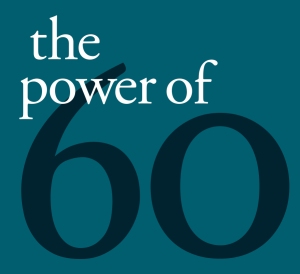With just six weeks remaining in our yearlong Power of 60 Campaign, celebrating the school’s 60-year history and anniversary, we wanted to talk about six of the programs and initiatives that have been impacted by giving over the past year.
Our Comprehensive Early Intervention Program provides services for families and children with disabilities, from birth to three years of age. Research shows that early intervention has a tremendous, positive impact on both children and families in the short-term and and long-term. Our Early Intervention services include: home-based educational and therapy services; school based parent-child groups for toddlers, and an assistive technology program to provide assessments and interventions. Early Intervention services also provide a nice introduction to P.G. Chambers School, and many of the children and families who have participated in this program, go on to become permanent members of our school’s community for years to come.
Cortical Visual Impairment (CVI) is a burgeoning field of medicine and therapy, and at P.G. Chambers School, we pride ourselves on being on the cutting edge of this new movement. CVI is an associated brain dysfunction as opposed to an ocular dysfunction, meaning that students diagnosed with CVI have perfectly normal eye functionality; what they lack is the ability to interpret and understand what their eyes are seeing. After conducting research into and attending trainings with the leading professional in the field, Christine Roman-Lantzy, PhD, our teachers and therapists have developed a CVI program at the school that has seen a change in student vision functionality by a range of .5 to 2.25 on the CVI 10-point ratings scale.
Kids Count Child Care is an inclusive program, accepting children with disabilities and/or developmental delays as well as children with typical development, from ages six weeks to five years. Our childcare program consists of: play and activity-based instruction and exploration, including time spent in the school’s Learning Park; developmental assessments and developmentally-appropriate curriculum; daily monitoring of the children’s health and wellbeing, and therapy services for children with disabilities. In addition, our program has flexible enrollment options, with operating hours of 7:30 AM to 5:30 PM Monday through Friday.
The Leadership Development Program is a program designed for the benefit of P.G. Chambers School staff, including teachers, therapists as well as administrators. An internal Leadership Task Force was central in developing the Leadership Exploration and Development (LEAD) Program. Using the leadership model posited in The Leadership Challenge (Kouzes and Posner), the task force developed a robust and well-rounded program that includes: classroom training, independent study, practical application, mentoring and individualized learning plans. We are now on our third class of LEAD participants, with department directors nominating one direct-report for participation each year.
The Move to Learn Project is an initiative aimed at integrating the school’s curriculum with strategies to get students moving and positioned in ways that best facilitate their learning, attentiveness and focus. This project started at the school in a grass-roots fashion with teachers and therapists noticing that the traditional model of sitting upright in a chair was not necessarily conducive to optimal learning for many of our students. Staff therefore began repositioning students into alternative learning positions including lying down or standing up. In order to accommodate these students and their new learning positions, P.G. Chambers School has purchased new equipment and re-designed classrooms over the past year, as well as adapting the schedule to begin each day with movement, as research shows that movement has a positive impact on the brain and its development.
Our Outcomes Measurement Initiative is an effort aimed at making our programs and services more accountable by more accurately measuring changes in the skills, attitudes and behaviors of our students. In the past, students were assessed annually, on individual basis. While important to measure individual progress, this method of evaluation did not allow us to glean comprehensive and useful information about our programs and services as a whole. We launched an Outcomes Measurement Task Force in 2008, and after conducting research into outcomes measurement resources and tools, the task force determined that we would need to build a proprietary tool in-house in order to assess the five critical areas of development for children with disabilities: social skills, communication, navigation, personal care and academics. We are currently in process of testing the reliability and validity of our tool, with future plans in progress to patent and share the tool.
The theme of this year’s campaign is “Beyond the Tuition,” and the programs highlighted above are indicative of steps, measures and programs we have taken and are committed to that express just that sentiment. Please consider a donation of $6 or more to this campaign today so we can continue to provide cutting-edge services to our students and families, and support the staff who do this meaningful work each day.




